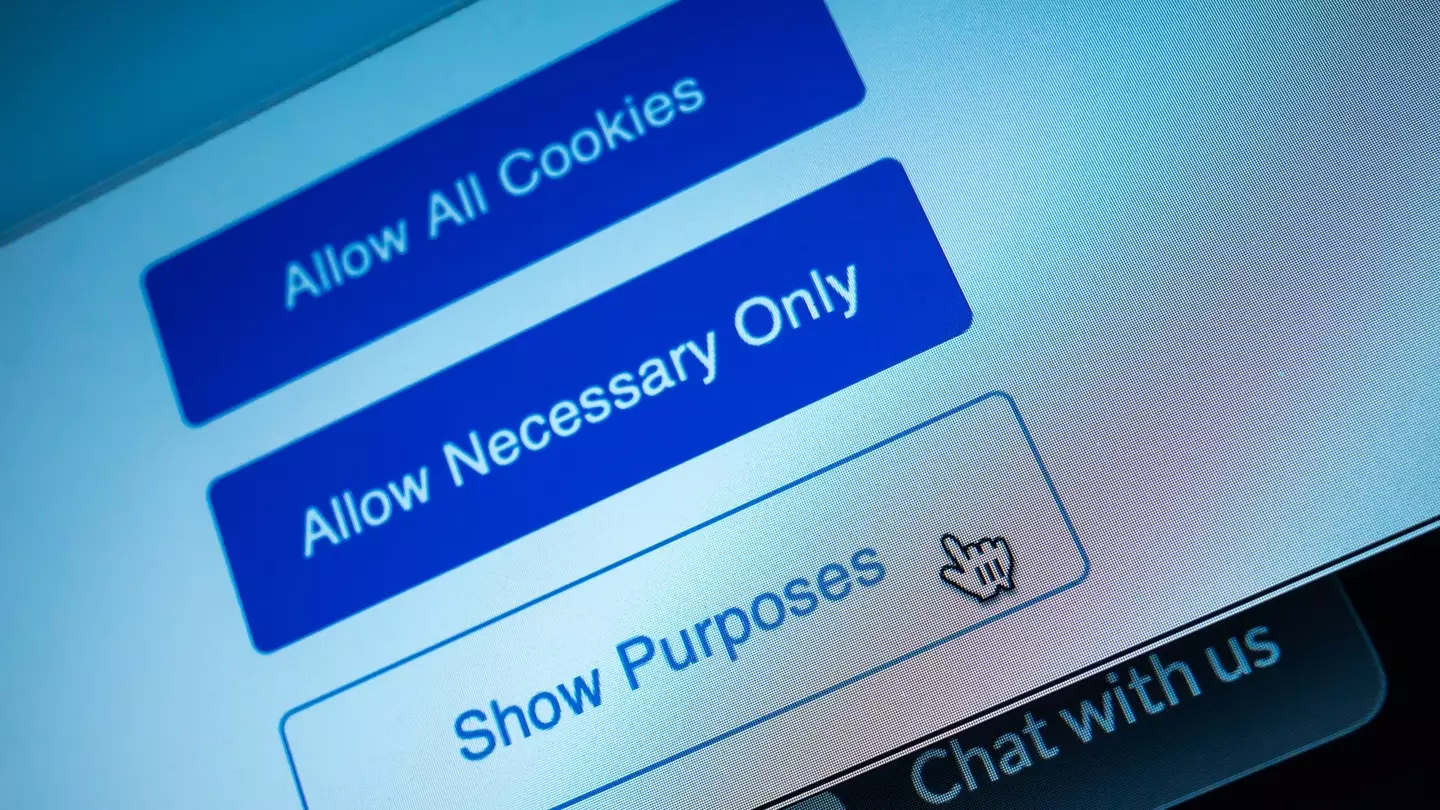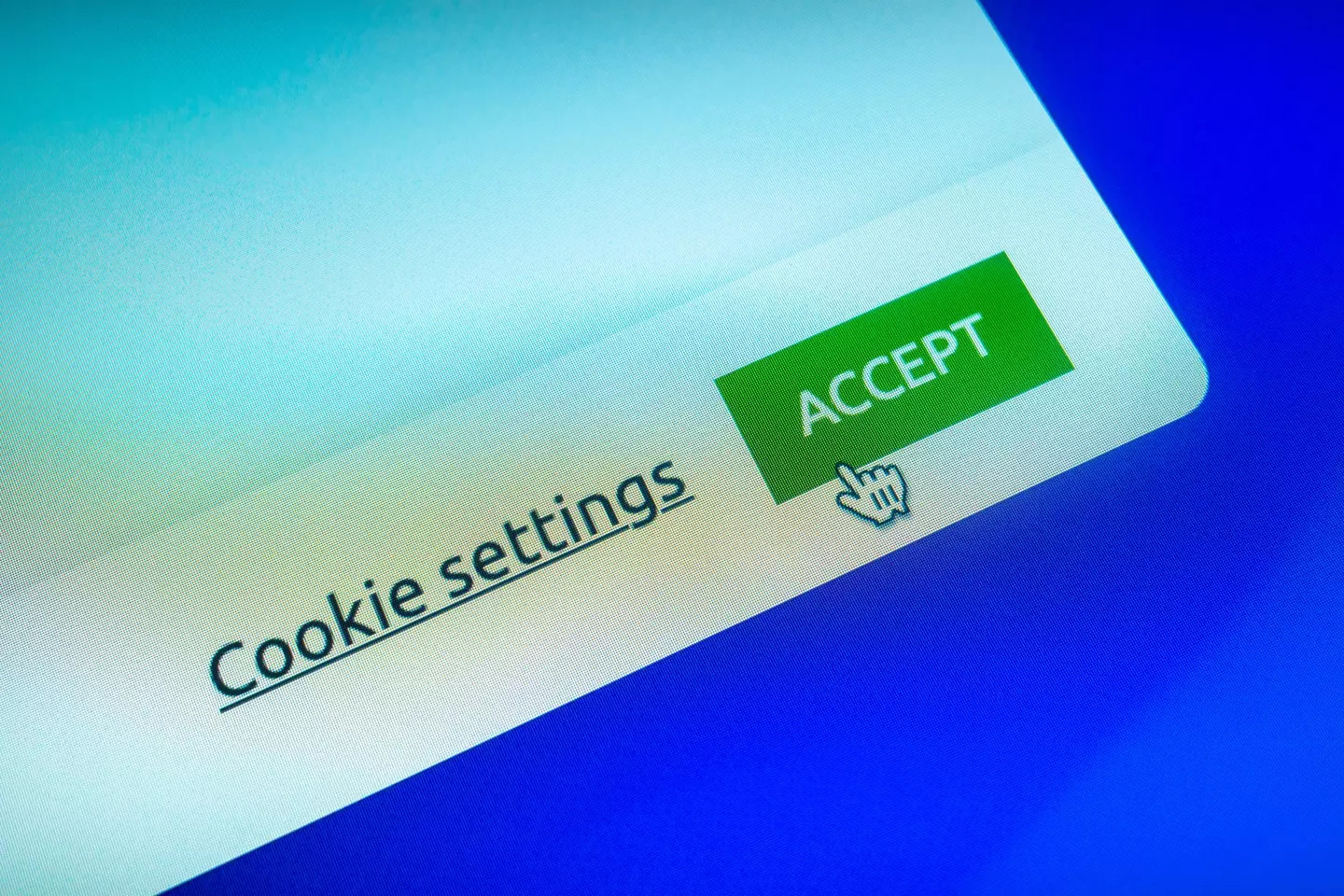Let’s be honest, how many of us know what actually happens when you click ‘accept all cookies’ online?
It’s almost like this weird thing goes off in your brain saying ‘I don’t give a f**k’, but we don’t even totally understand what it is we don’t care about.
I mean, we know it’s not the cookie monster offering us a chocolate chip, but even the word ‘cookies’ seems like a bizarre choice.
Yet in the world of the internet, they’re actually just text files containing small pieces of data.
While it might just seem harmless, there are times when you really should avoid accepting ‘all cookies’, even if they’re essential to the internet experience nowadays. Many international laws mean websites are required to ask you, so you might as well be making the most of that.
Shock, they've got nothing to do with this kind of cookie. (Getty Stock) But still, we probably need to understand what’s actually going on in the first place.
Cybersecurity company Kaspersky explains: “Data stored in a cookie is created by the server upon your connection. This data is labelled with an ID unique to you and your computer. When the cookie is exchanged between your computer and the network server, the server reads the ID and knows what information to specifically serve you.”
Basically, when you accept them, small bits of data are stored on your browser by the sites you visit to track your browsing behaviour, log your preferences, your login details and other activities.
READ MORE:
BRITS PLAN TO USE CHEAP LOOPHOLE TO AVOID DIGITAL ID
EXPERTS CLAIM AI WILL TRICK US INTO CREATING ROBOT ARMY
So, those cookies stored could contain all kinds of information from links clicked and personal preferences to the settings selected, log-in information, and time you spent on a website.
It can even store personal details like your phone number and address or what you’ve saved in your shopping cart. And with all that kind of stuff logged, it supposedly means you may have an improved user experience on sites or simply an easier time logging in.
There are times when you should avoid. (Getty Stock Image) When you shouldn’t accept cookies
The cybersecurity experts at Norton explain that the potential issue with refusing to accept cookies is that some websites might not allow you to use the site at all, or you might not get the full user experience.
However, it advises that here are five scenarios when you may want to totally avoid accepting or keeping cookies.
The first is when you’re on an unencrypted website (you’ll know this if the lock icon beside the address isn’t locked). That’s because if it’s not encrypted, then there’s no security to protect your data meaning third parties (e.g. hackers) may be able to steal cookies from your browser.
Norton also advise against ‘third-party cookies’ as if you don’t decline, the website may sell your browsing data to third parties, potentially leaving you vulnerable.
You may also want to refuse cookies if you’ve got a slowed computer speed as the occupation of disk space isn’t going to help.
Flagged cookies should also be avoided as they’re being flagged as suspicious for a reason.
And finally, if you’re sharing private data (like banking information) you should decline the use of cookies to keep it safe.

 Jess Battison
Jess Battison
